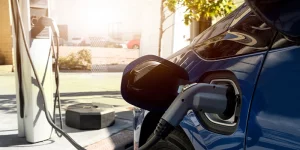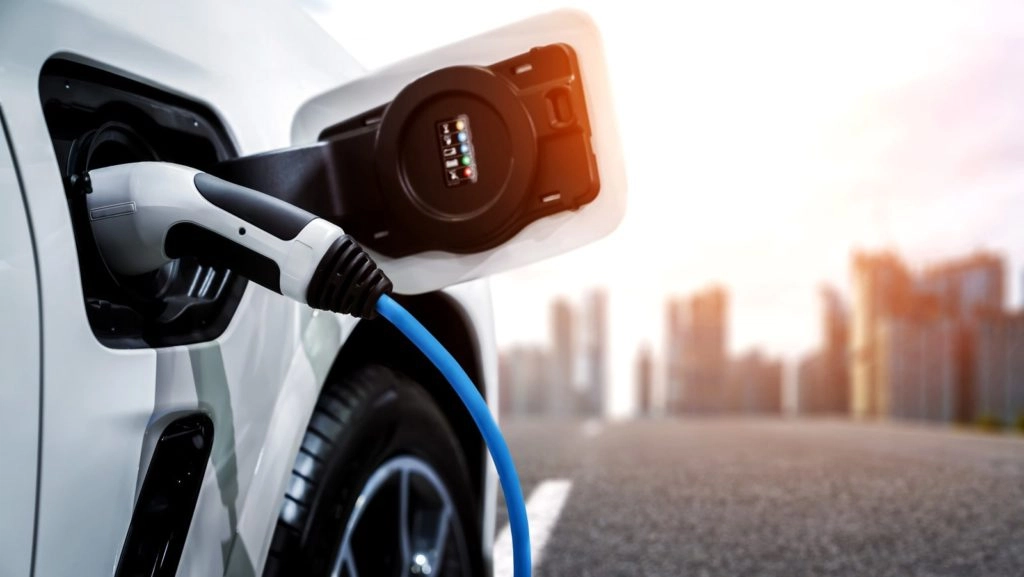Online entrepreneurs are steering through the complexities of installation EV charger costs with strategic precision. They source materials through digital platforms to guarantee competitive pricing without sacrificing quality. Collaborations with local electricians help secure bulk discounts, while DIY methods reduce labor expenses. However, the effectiveness of these approaches raises questions about the sustainability and reliability of their solutions. What factors contribute to the long-term viability of these cost-cutting measures?
Key Takeaways
- Online entrepreneurs leverage partnerships with local electricians for competitive pricing and bulk discounts on EV charger installations.
- They utilize online platforms to source affordable, high-quality materials, reducing overall installation costs.
- Many opt for DIY installation methods when feasible, significantly lowering labor expenses while maintaining quality.
- Entrepreneurs take advantage of government incentives and rebates to alleviate financial burdens associated with installation.
- Implementing predictive analytics helps optimize installation planning, reducing waste and ensuring cost-effective solutions.
Understanding the Impact of EV Charger Installation Costs
As online entrepreneurs increasingly adopt electric vehicles (EVs), understanding the impact of EV charger installation costs becomes essential. The costs can vary considerably based on several factors, including the type of charger, installation complexity, and local regulations. Basic Level 2 chargers generally range from $500 to $2,000, while installation might add another $1,000 or more, depending on the electrical infrastructure. Additionally, entrepreneurs must consider potential costs associated with permitting and site assessments. These expenses can influence budget allocations and overall operational strategies. By thoroughly evaluating “how much does it cost to install an EV charger,” online entrepreneurs can make informed decisions that align with their financial goals while contributing to a sustainable future. Understanding these costs fosters a sense of community and responsibility among peers.
Innovative Strategies to Reduce Installation Expenses
Maneuvering the landscape of EV charger installation costs presents online entrepreneurs with opportunities to implement innovative strategies that can greatly reduce expenses. One effective approach involves leveraging partnerships with local electricians, allowing for competitive pricing and potentially bulk discounts. Additionally, utilizing online platforms to source affordable, high-quality materials can decrease costs. Entrepreneurs are also exploring DIY installation methods, which can considerably lower labor expenses when feasible. Moreover, accessing government incentives and rebates can alleviate the financial burden associated with installation. By adopting these strategies, online entrepreneurs can effectively address the question, “How much does it cost to install an EV charger?” while ensuring quality remains uncompromised, fostering a sense of community among environmentally conscious consumers.
The Importance of Quality in EV Charger Solutions
Quality plays a pivotal role in the effectiveness and longevity of EV charger solutions. High-quality components guarantee that chargers can withstand the rigors of daily use, thereby minimizing maintenance and replacement costs. Entrepreneurs focused on cost-cutting must recognize that opting for subpar materials can lead to frequent breakdowns and ultimately higher expenses. Additionally, reliable chargers enhance customer satisfaction and trust, fostering loyalty in an increasingly competitive market. The importance of quality extends beyond initial purchase considerations; it encompasses the overall user experience and operational efficiency. As businesses evaluate options, understanding how much it costs to install an EV charger should include an assessment of quality, guaranteeing a sound investment that aligns with long-term goals and community expectations.
Evaluating the Total Cost of Ownership for EV Chargers
Evaluating the total cost of ownership (TCO) for EV chargers is critical for online entrepreneurs seeking to make informed financial decisions. TCO encompasses not only the initial purchase price but also installation expenses, ongoing maintenance, and energy costs. Entrepreneurs must consider these factors to understand how much it costs to install an EV charger effectively. By analyzing the lifespan of the equipment, potential tax incentives, and the savings from reduced fuel expenses, they can gain a clearer picture of long-term value. Additionally, ensuring compatibility with various EV models can prevent future expenditures. Ultimately, a thorough TCO assessment aids in selecting the most cost-effective solution, fostering smarter investments in a growing market.
Future Trends in Cost-Effective EV Charger Installations
As online entrepreneurs increasingly recognize the financial impacts of EV charger installations, future trends indicate a shift towards more cost-effective solutions. Innovations and strategic partnerships are paving the way for reduced expenses while maintaining quality.
- Enhanced modular charging technology for scalability
- Government incentives and rebates promoting eco-friendly installations
- Predictive analytics to optimize installation planning and reduce waste
- Community-based charging networks are lowering individual costs
These trends suggest a collective movement towards affordability, ensuring that the question of “How much does it cost to install an EV charger” becomes increasingly favorable for entrepreneurs. Embracing these advancements allows businesses to invest in sustainable solutions without sacrificing their bottom line, fostering a sense of belonging within the eco-conscious community.
Frequently Asked Questions
What Factors Influence the Price of EV Charger Installation?
Several factors influence the price of EV charger installation, including the type of charger, installation location, electrical infrastructure, labor costs, and local permitting requirements. These elements collectively determine the overall expense for consumers.
Are There Government Incentives for Installing EV Chargers?
Government incentives for installing EV chargers often include tax credits, rebates, and grants. These financial benefits aim to encourage adoption, reduce installation costs, and promote sustainable energy practices, ultimately supporting a shift to electric vehicles.
How Long Does It Take to Install an EV Charger?
The installation of an EV charger typically takes between four to eight hours, depending on the complexity of the electrical system and site conditions. Proper planning can streamline the process, ensuring efficiency and safety during installation.
Can I Install an EV Charger Myself?
The question of whether one can install an EV charger themselves often hinges on local regulations and electrical expertise. While DIY installation is possible, professional installation guarantees safety and compliance with necessary codes and standards.
What Maintenance Do EV Chargers Require After Installation?
Maintenance for EV chargers typically includes regular inspections, software updates, and cleaning of connectors. Ensuring proper ventilation and checking for wear can enhance safety and efficiency, ultimately prolonging the charger’s lifespan and reliability.
Conclusion
In summary, online entrepreneurs are adeptly maneuvering the complexities of EV charger installation costs by implementing innovative strategies that prioritize both affordability and quality. By leveraging digital platforms for material sourcing, collaborating with local electricians for bulk discounts, and utilizing DIY methods where applicable, they have successfully minimized expenses. Additionally, government incentives further enhance their financial strategy, ensuring that the focus remains on delivering reliable and efficient EV charging solutions without compromising on quality.
You may also like to read:





